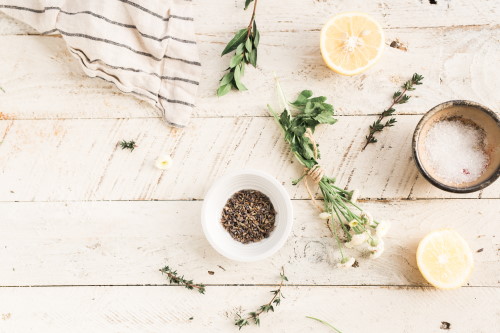Ulcerative colitis (UC), an inflammatory bowel disease, isn’t something you typically bring up in dinner conversation, but it can be an embarrassing condition for many people living with it.
Those who are diagnosed with UC can experience ulcers, or sores, in the colon, or large intestine, which can lead to diarrhea or constipation, bloody stools and stomach pain—but can vary over time. There may be periods with little to no symptoms, called remission, or other periods when symptoms worsen, called a flare.
BREAKING: Newly Legalized Herb Relieves Pain - Available Without A Prescription
“Flare-ups can occur for many different reasons and last for weeks or even years,” said Sasha Taleban, MD, a gastroenterologist with University Medical Center Tucson. “The most common causes are underlying stool infections, inappropriate medical therapy and the use of certain medications.”
Living with ulcerative colitis
If you’re living with UC or are newly diagnosed, here’s some good news: The outlook for those living with UC is better than it has ever been before.
“For patients with the most severe cases of UC, there are multiple medical therapies,” said Dr. Taleban. “The rates of complications, like colon cancer, appear to be decreasing. In patients who require surgery, the operations are less invasive - meaning a quicker recovery.”
Getting a handle on UC involves knowing how to manage returning symptoms and recognizing factors that may contribute to flare-ups. Dr. Taleban shared five ways to help decrease the severity and frequency of flare-ups.
How to manage ulcerative colitis
1. Avoid NSAIDs
NSAIDs are over-the-counter non-steroidal anti-inflammatory drugs, such aspirin, ibuprofen and naproxen. “Prolonged use of NSAIDs have been tied to an increased risk of flares so we generally ask patients to avoid these medications, when possible,” Dr. Taleban said.
2. Watch what you eat and drink
Food triggers are unique to each person, so there really isn’t a specific diet that has been shown to prevent or treat UC. That said, here are some diet strategies that may or may not help you:
- If you have active intestinal inflammation, avoid high fiber foods, such as brown rice, almonds, beans and lentils. Try to stick to foods that have no more than 2 grams of fiber per serving, such as white rice and pasta, fish, eggs and cooked vegetables.
- Eat smaller, more frequent meals.
- Decrease caffeine, juices, soda and alcohol consumption.
- Limit dairy products if you’re lactose intolerant.
- Avoid processed, fatty and fried foods.
- Consider taking nutritional supplements if your health care provider approves.
- Drink plenty of water to stay hydrated.
3. Keep a food journal
Although there’s no evidence to suggest that any particular food or diet causes, prevents or cures UC, a food journal that also records symptoms can help you identify foods that you may not be able to handle.
“Often in UC, there’s a discrepancy between symptoms and active intestinal inflammation,” Dr. Taleban said. “While certain foods may not cause UC flares, they can cause symptoms such as abdominal pain and diarrhea.”
If you cut out certain foods from your diet, do you feel better? By journaling, you can begin to notice patterns with foods that are affecting you and should be avoided.
4. Get plenty of exercise
Regular exercise can help with mood, decrease stress, bone health, maintain a healthy weight and increase overall well-being which, Dr. Taleban said, is tied to better outcomes for those with UC.
“Listen to your body and participate in exercise you can tolerate,” he said. “Adequate hydration and nutrition in UC are key factors in any exercise program. Talk to your provider if there is any question about an exercise program.”
It also doesn’t hurt to get quality sleep – that’s seven to nine hours – each night. This can help your overall health and may help improve and manage your symptoms
5. Be consistent with medication
There are many effective medications for UC, but they only work if taken consistently. Don’t skip or miss a dose, even if you’re feeling great in remission. Symptoms could return if you don’t take your medication as directed.
“In mild-moderate disease, the go-to or mainstay of treatment is mesalamine medication,” Dr. Taleban said. “In moderate-severe disease, there are currently seven approved immune suppressing therapies.”
When is surgery necessary for ulcerative colitis?
There are two main reasons you might have to undergo surgery:
- If you’re unable to tolerate or have stopped responding to your UC medications
- If you develop colon cancer
TRENDING: Boost Your Memory With This Easy Trick
“The standard surgery to treat UC is a proctocolectomy, which removes both your colon and your rectum, which collectively is known as your large intestine,” Dr. Taleban said. “The most common type of proctocolectomy procedure is the J-pouch surgery, where the small bowel is used to make a pouch which is then connected to the anus so a patient can pass stool as before.”
Takeaway
While you can’t always prevent a flare-up with UC, there are things you can do to lessen the severity and decrease the chances of a flare-up occurring.
Talk to your health care provider to help bring your condition under control.









